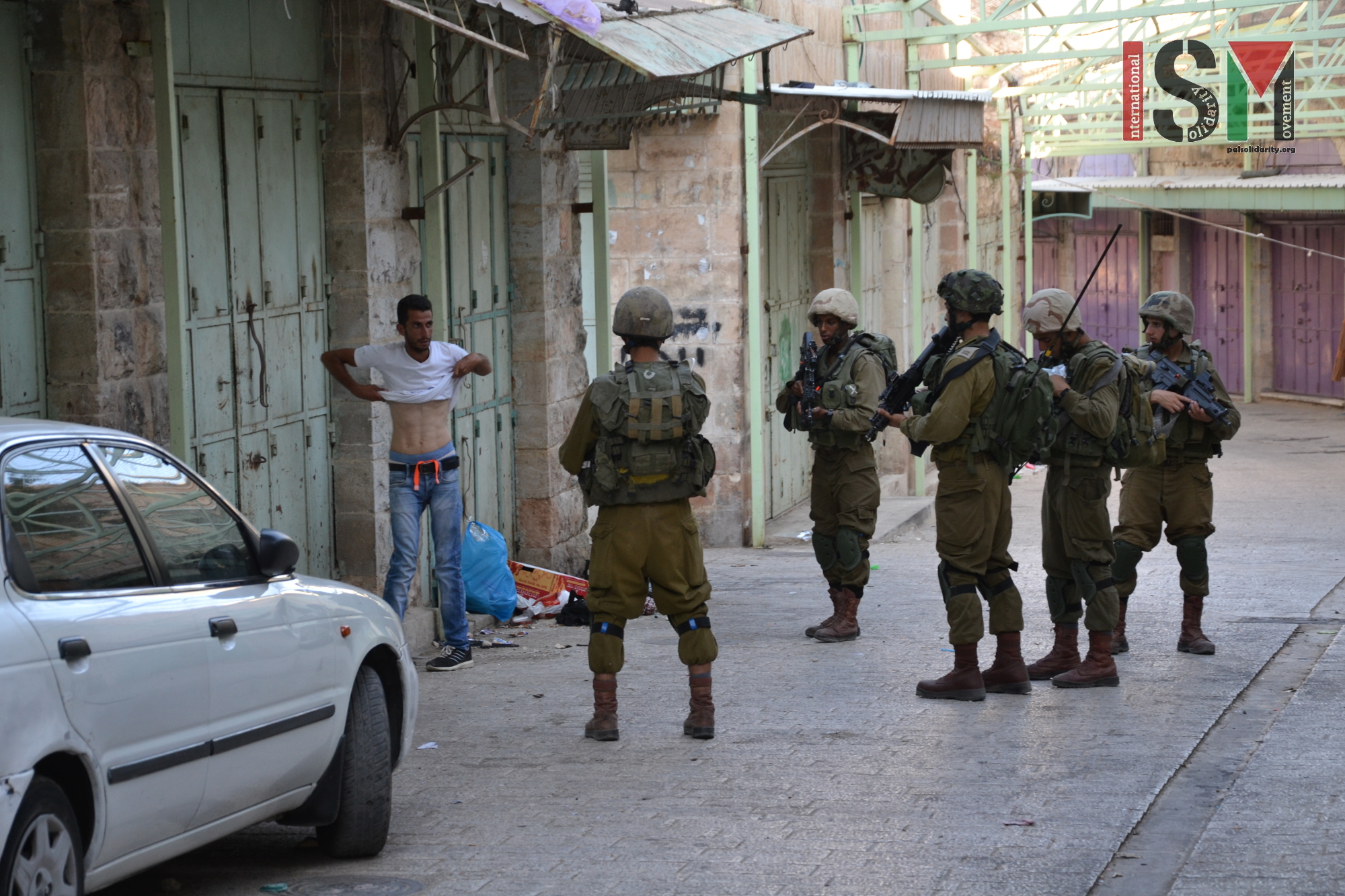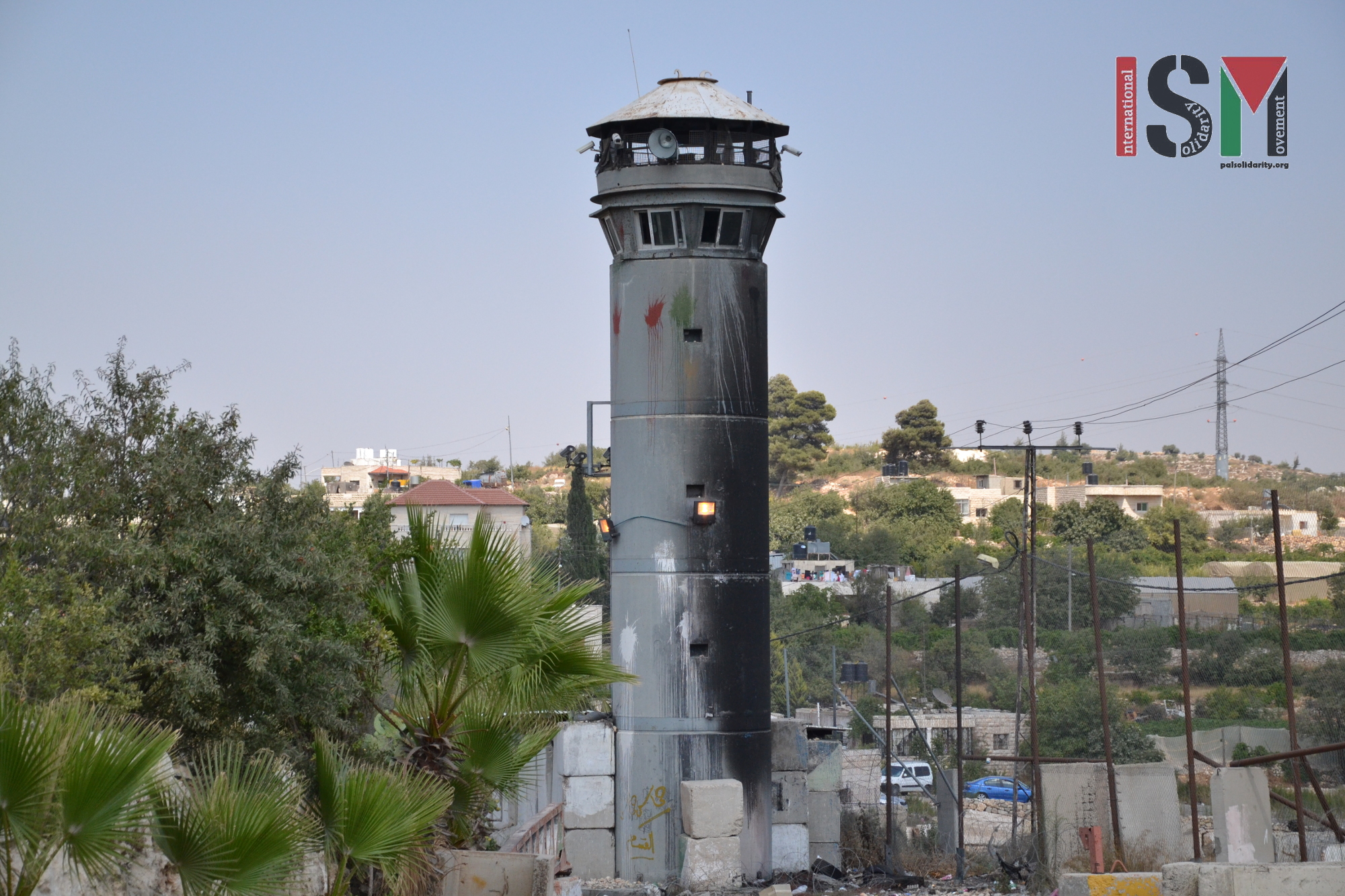Tag: Arrests
-
Control and ID-check of Palestinians
23th August 2016 | International Solidarity Movement, al-Khalil team | Hebron, occupied Palestine As a Palestinian you have to have your ID on you at all times, otherwise you may get detained or arrested. In Palestine they have 3 different kinds of ID. The green ID is for people who live in the West Bank.…
-
Israeli forces hunt for Palestinian children in Hebron market
1st August 2016 | International Solidarity Movement, al-Khalil team | Hebron, occupied Palestine On Sunday, 31st July 2016, Israeli forces in the Old City souq, the Palestinian market, of occupied al-Khalil (Hebron), were searching for a group of three Palestinian boys. Claiming they were throwing stones, Israeli forces were searching for them in order to…
-
Beit Ummar’s children targeted by the Israeli army
30th July 2016 | International Solidarity Movement, al-Khalil team | Beit Ummar, occupied Palestine Beit Ummar, a small town outside of Hebron, has a population of just 18000 people, around 200 of which are imprisoned, with 6o of those being below 18 years old. These children are often in administrative detention for over a year…



